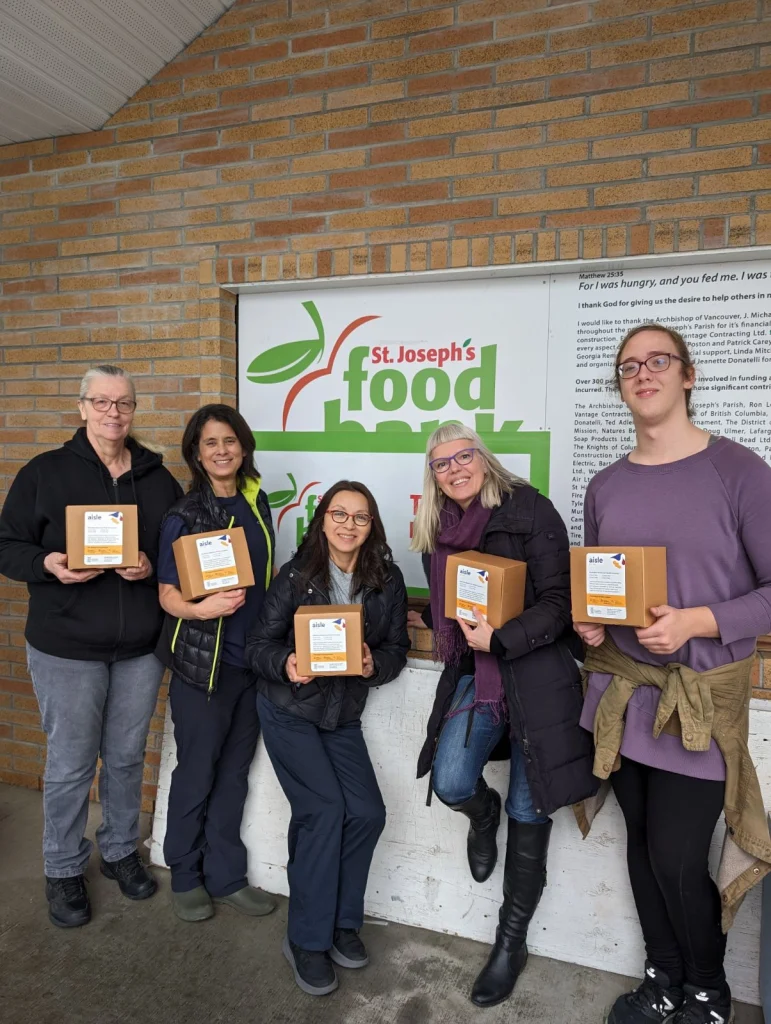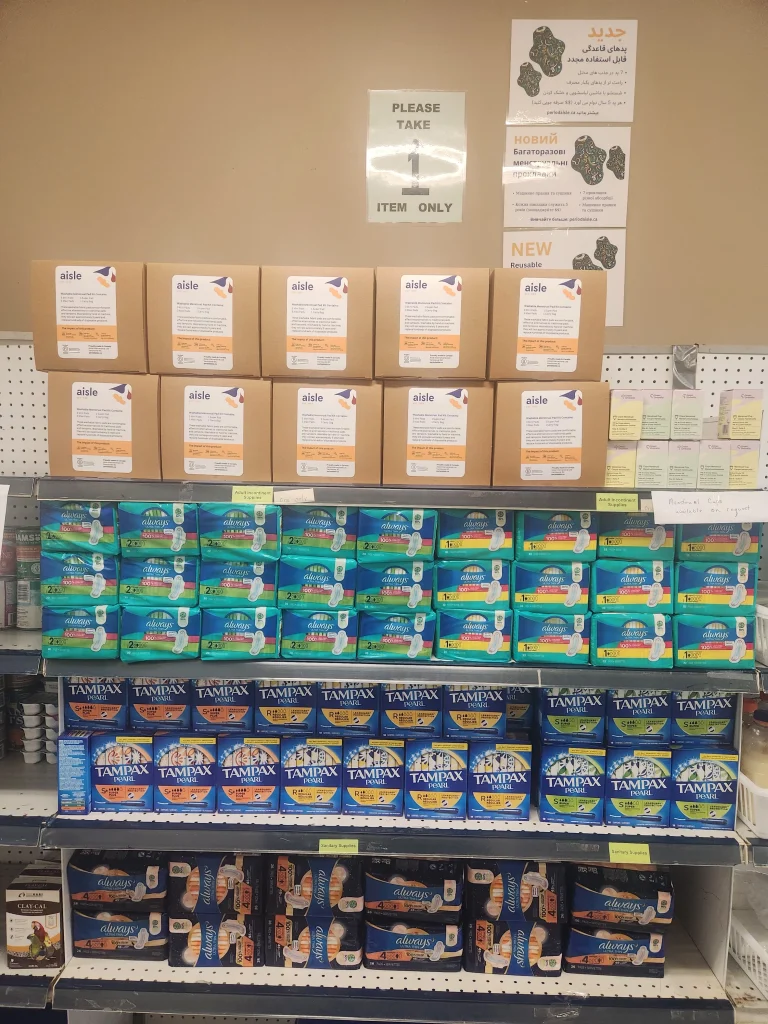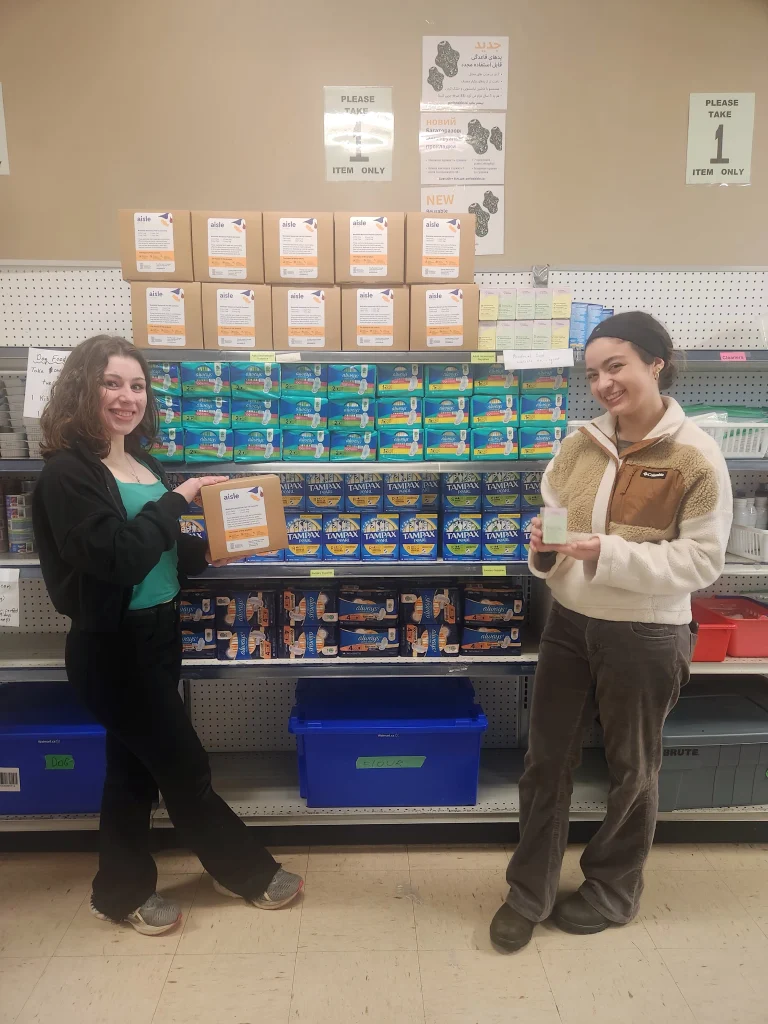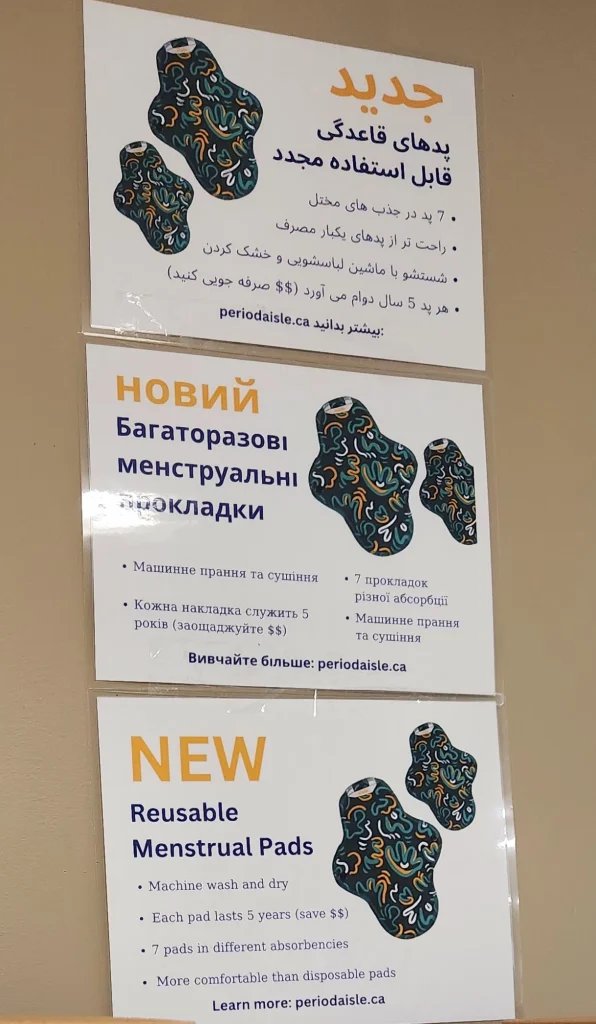Every day, millions of people are prevented from reaching their full potential because they struggle with the financial burden to afford period products.
Across the network of 5,100 food banks and community organizations in Canada, these organizations see firsthand how far too many people are forced to choose between menstrual products or buying enough food to eat.
It’s clear that at a time when Canadians are struggling to make ends meet, buying pads, tampons and other menstrual products shouldn’t be an additional source of financial strain.
For Menstrual Hygiene Day, this May 28, Food Banks Canada recognizes the need to provide greater access to menstrual products and support for menstrual health and equity.
Food Banks Canada is excited to be working with Women and Gender Equality Canada to lead a $22.9 million national pilot to address period poverty in Canada through two objectives:
- To test a national approach to provide free access to menstrual products to diverse low-income communities across Canada.
- To increase education and awareness on people’s knowledge of menstrual products, good practices, and period stigma.
Funded by Women and Gender Equality Canada, we established a national pilot for the Menstrual Equity Fund, which partnered with organizations across Canada to get menstrual products to people who typically struggle to access them along with scaling existing education and awareness activities to inform Canadians about period poverty and reduce stigma around menstruation.
“This pilot is extremely important because of the detrimental effects menstrual inequality creates both physically and mentally,” said Kirstin Beardsley, Chief Executive Officer, Food Banks Canada. “With the support of the food bank network and community organizations, we are committed to working collaboratively to ensure those who need these products the most have access to them, along with public education and awareness activities that break down barriers and create open conversations about menstruation to foster more inclusivity and understanding.”
Through the pilot, Food Banks Canada procured and distributed over 74.5 million products to reach over 3.5 million low-income individuals in communities in every province and territory, including marginalized communities such as Indigenous communities, refugees, unhoused individuals, trans and non-binary people, and people living in rural and remote areas.




According to Canadian Mental Health Association, Cariboo Chilcotin Branch Executive Director Tereena Donahue, the provision of free menstrual products has had a positive impact on clients in their area.
“By removing the barrier of cost, individuals can manage their menstrual hygiene with dignity and without the added stress of financial strain. This has not only improved their physical well-being but also contributed to their emotional and mental health, fostering a sense of dignity and empowerment,” Donahue said. “Clients no longer have to worry about the availability of supplies or compromise their hygiene due to limited resources. This has helped create a safer and more hygienic environment for all individuals within our programs.”
At the Just Friends Food Bank in Stanley, N.B., staff reported clients often have to choose between paying for bills, food or period products, and for those living in poverty, even a single package of pads can make a huge difference.
“We realized there was an even greater need in our community for access to free menstrual products than just our food bank clients and students at the school,” staff said.
“I’m non-binary, and the fact that you provide me with menstrual products with no questions asked and no judgement makes my anxiety that much better, I don’t have the looks and embarrassment I get when I have to buy them in town. This is an amazing program, thank you.”
— Just Friends Food Bank client testimonial
In Cambridge, O.N., a male volunteer delivery driver said he saw the impact of menstruation on everyday life and the cost associated with it.
“I never thought about how important this type of stuff is, growing up in the UK in a man’s household we didn’t really talk about menses and at first I felt awkward having to deliver this,” he said. “At one community centre the receptionist was telling me how impactful these will be, and it really made me think just how much it costs a woman to purchase this. It seems like the right fit for a food bank to have these to distribute the same way we give out food.”
“I have a very heavy period and being able to have the relief of getting enough pads and tampons for myself has saved me more than $40 this month. That may not seem like much, but for me on ODSP it is a week’s worth of groceries.”
— Cambridge Food Bank client testimonial
Sandra Cascaden, the manager at the St. Joseph’s Food Bank in Mission B.C., added that client agency and choice is being supported through the pilot by offering a selection of menstrual products, including reusable options.
“I am amazed to see our younger generation leaning toward reusable products, as well as the migrant community,” Cascaden said. “Two teenagers from the Philippines were so excited because their mom had been sewing their pads from old material. It was a blessing to watch their appreciation and gratitude.”